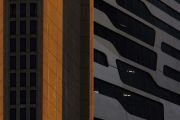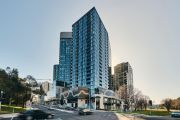
Commercial property confidence slumps to record low
Commercial property sentiment is at its lowest ebb ever while industry confidence turned negative over the longer two-year timeframe for the first time, according to National Australia Bank economists.
Sentiment collapsed in most sectors in the second quarter. Retail, office and hotel real estate all attracted unprecedented declines in confidence, according to the NAB Commercial Property Survey.
“These sectors struggled because of widespread changes in working arrangements (from the office to homes), mandatory closures in hospitality and social distancing (causing many retailers to fail), and travel restrictions that saw occupancy rates in CBD hotels to fall to just 37 per cent in Q2,” the NAB report said.
However the fallout for industrial property was “comparatively limited” mostly due to the logistics demand generated by the rapid acceleration in online shopping over recent months, the report said.
Compiled by chief economist Alan Oster and the bank’s economics team, the survey tapped 370 industry respondents — real estate agents, property developers, fund managers and investors– for their views on the prospects across the property sector.
Overall, sentiment has dropped to negative 62 points on the index, surpassing the previous low of negative 19 points in the 2012 third quarter.
Confidence in the longer-term outlook also took a battering. The 12-month index fell to negative 55 and the two-year measure to negative 29, recording its first negative reading.
“The results suggest property experts are not expecting markets to improve any time soon,” the NAB report said.
Eight in 10 property experts expect the biggest changes in office markets from COVID-19 will be the continuation or extension of working from home as well as structural changes in how office space was used, according to the survey findings.
“A large number also expect to see slower leasing volumes and renewals, and cashflow reductions due to firms’ ability to continue operating and pay rent and how this will impact investors’ mindset as key changes,” it said.
“Only 2 per cent believe that conditions will return to pre-COVID-19 patterns.”
As shoppers stayed home during the pandemic social restrictions, rent collection across all types of retail property was hit. Holding up best though were the bulky goods and large format retail centres while strip retailers and regional shopping malls fared worse, the report said.
“The number of developers looking to start new works in the next 18 months fell heavily to a survey low 68 per cent in Q2, suggesting the disruption caused by the pandemic has not only had an immediate impact on the building construction industry but will continue to impact over the next few years,” it said.










